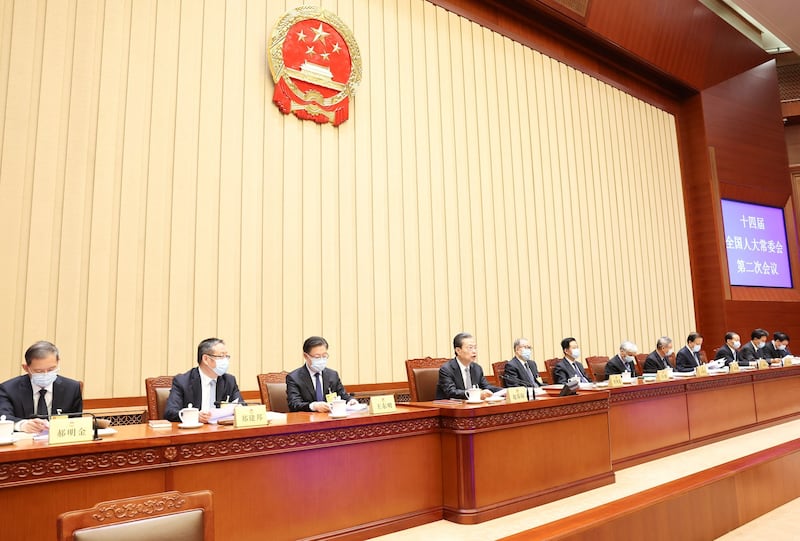A Chinese court on Tuesday handed down a six-year jail term to a former state-owned enterprise employee for handing "corporate intelligence" to foreign intelligence agencies.
The Chengdu Intermediate People's Court court in the southwestern province of Sichuan sentenced a man identified only by his surname Wang to six years' imprisonment and the confiscation of 500,000 yuan (US$68,700) of his personal assets after finding him guilty of "espionage," the state-run provincial broadcaster reported, citing state security police.
"Wang once headed the overseas branch of a major state-owned company based in southwestern China," Sichuan Radio and Television said in a video report posted to its official Weibo account.
"In 2012, the company, which is in an internationally competitive sector, became embroiled in protracted overseas litigation as part of a so-called China spying case," it said.
It said Wang’s name had turned up in documents submitted as evidence in the overseas spying case, 14 of which were "defined as intelligence" under Chinese law.
A Chinese lawyer who asked not to be named for fear of reprisals said the ruling Chinese Communist Party recently amended its Counterespionage Law, and has broadened its definition of what materials are considered "intelligence" or "state secrets."
"China now defines a lot of information as secret," the lawyer said. "Government information that might already have been made public is still classified as secret."

"If you give it to overseas personnel, you may be seen as spying," he said. "It's ridiculous."
"A lot of this stuff is available on the internet, but there are no limits – they have expanded the definition of confidential," the lawyer said.
Wider scope
The National People's Congress passed amendments to the Counter-Espionage Law on April 26, broadening the scope of material that can be used to back up allegations of spying.
"Documents, data, materials, and items related to national security and the national interest," are now treated as state secrets under the law, state news agency Xinhua reported.
The amendments prompted concern that the amended law will also give state security police and other investigators new powers to access corporate facilities and electronic equipment, and that normal business activities like gathering intelligence on local markets, competitors and partners could be treated as "espionage" amid growing tensions between Beijing, the United States and its allies.
The Chinese authorities have typically employed a highly elastic definition of what constitutes a state secret, and national security charges are frequently leveled at journalists, rights lawyers and activists, often based on material they posted online.
Yet the newly amended law gave no definition of what constitutes a matter of national security or the national interest.

Beijing-based political journalist Gao Yu, who was herself jailed in 2015 for " leaking state secrets" after she sent a government document that had already been published online to a contact, said more and more cases like hers and Wang's will likely be brought under the amended law.
"Cases like this aren't just about officials now, but ordinary people too, from all walks of life," she said. "Companies, foreign trade, diplomacy and the press are very unsafe industries now."
Gao said she sees Wang's case as a warning to the public about the new shift in attitude.
"I think [this report means that] they are announcing this now, both externally and internally," she said.
‘Hostile Western forces’
Wang's sentencing comes after top disciplinary official Zhang Jiwen warned of the risks and dangers of diplomatic and foreign affairs work.
"Diplomatic and foreign affairs cadres are the main force in foreign affairs work," Zhang wrote in an article published in an official disciplinary journal last week. "They are on the front line of foreign exchanges, especially the struggle with hostile Western forces."
"They are at relatively high risk of being infiltrated, encouraged to defect and coaxed into corruption," he said, in comments that some have taken to refer to the disappearance and sacking of former foreign minister Qin Gang.
Zhang also warned employees in other organizations that there is a risk of leaking confidential information and of accepting favors.
"There are still problems such as illegal acceptance of gifts from private businesspeople during trips, using public funds for travel and illegal payment of subsidies," Zhang wrote in a translation published by Hong Kong's South China Morning Post newspaper.
Translated by Luisetta Mudie. Edited by Malcolm Foster.
